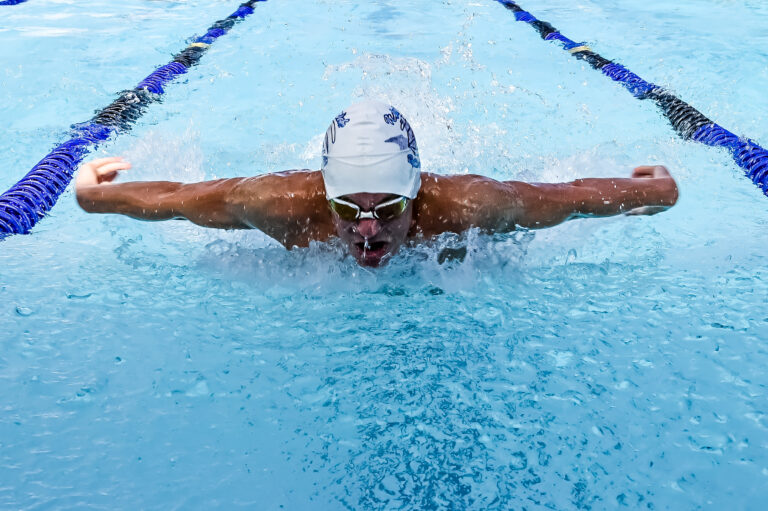The first meet of the season is quickly approaching (or already behind you in some states!)! Both new and returning swim parents often have many questions pre-season, several of which may involve “Disqualifications” (a.k.a. DQs). Returning parents might have encountered DQs in seasons past and new parents may be wondering what this “scary” acronym could possibly signify. Never fear! SwimTopia is here to break down everything DQ-related. Here’s what you need to know:
What exactly is a DQ?
Like almost all other sports, competitive swimming is governed by strict regulations regarding how the sport is to be conducted. Each of the four strokes (freestyle, backstroke, breaststroke, and butterfly) are to be swum in a specific way—arms and legs moving simultaneously to create a pattern. These stroke rules help keep strokes uniform from state to state, country to country, and continent to continent. They also maintain a level playing (or, should we say, swimming) field for any athletes who are competing.
Stroke judges (also called stroke officials) observe swimmers during competitions to ensure everyone follows the stroke guidelines. Judges are formally trained and often parents of swimmers (being a stroke judge is a great way to get involved with summer swim in an impactful way—chat with your team’s coach/representative to see how to be certified!).
A DQ happens when a swimmer breaks one of the swim stroke rules. For example, butterfly kick requires both legs to stay together in a dolphin-like motion. Younger swimmers, especially, have a hard time maintaining this position as a) butterfly is the only stroke in which legs cannot come apart (which can be confusing) and b) this position requires a certain degree of strength that some younger swimmers simply do not possess.
If, using the butterfly example, legs do separate during a competition, the swimmer is DQed for that race. Coaches/swimmers will be notified, and the race time will not count. Please note: DQing one event does not mean the kiddo is out for the rest of the competition. The DQ only affects that one race, and means their time for that race cannot be considered official for placing, points, or qualifying for future meets that require qualification times
Okay, my kid just got their first DQ. Now what??
DO:
- Take your swimmer out for a treat! In Texas, it’s a fun tradition to visit Dairy Queen (a.k.a. DQ) following a DQ for soft-serve ice cream (highly recommended—it’s an activity the whole family can enjoy!).
- On a more serious note, simply continue to support your swimmer. Ask them what their coach said about the race, ask what they learned, ask whether they had fun at the meet.
- Remember that a DQ is a learning experience. It’s a way to discover areas for improvement and what to focus on during practice.
DON’T:
- Argue the call unless you have video evidence and/or another judge questioning the DQ.
- Try to “coach” your swimmer—i.e. telling them what they should have done instead (even if you are a former/current swimmer or coach). This takes away from the fun of summer swim and can also make a DQ seem like a bigger deal than it actually is. Let your team’s coaches do the coaching.
- Compare your athlete to other swimmers on the team (including siblings). Allow your kiddo to develop at their own pace and enjoy the process.
My kid keeps getting DQed! What do I do now??
Again, our top suggestion is to continue supporting, encouraging, and loving your swimmer! As mentioned, each child develops body awareness at a different pace. Swimming is a sport of repetition. It simply takes time to build strength and skills.Your coach will keep working closely with your swimmer to improve. At the end of the day, the most important things your swimmer gains from summer swim (e.g. friendship, team work, goal setting, water safety skills) will exist regardless of whether they can flex both feet on breaststroke or not :p
From all of us at SwimTopia to you, we wish our summer league swimmers and parents a wonderful first meet of the season. May it be exhilarating, zany, and fulfilling!



